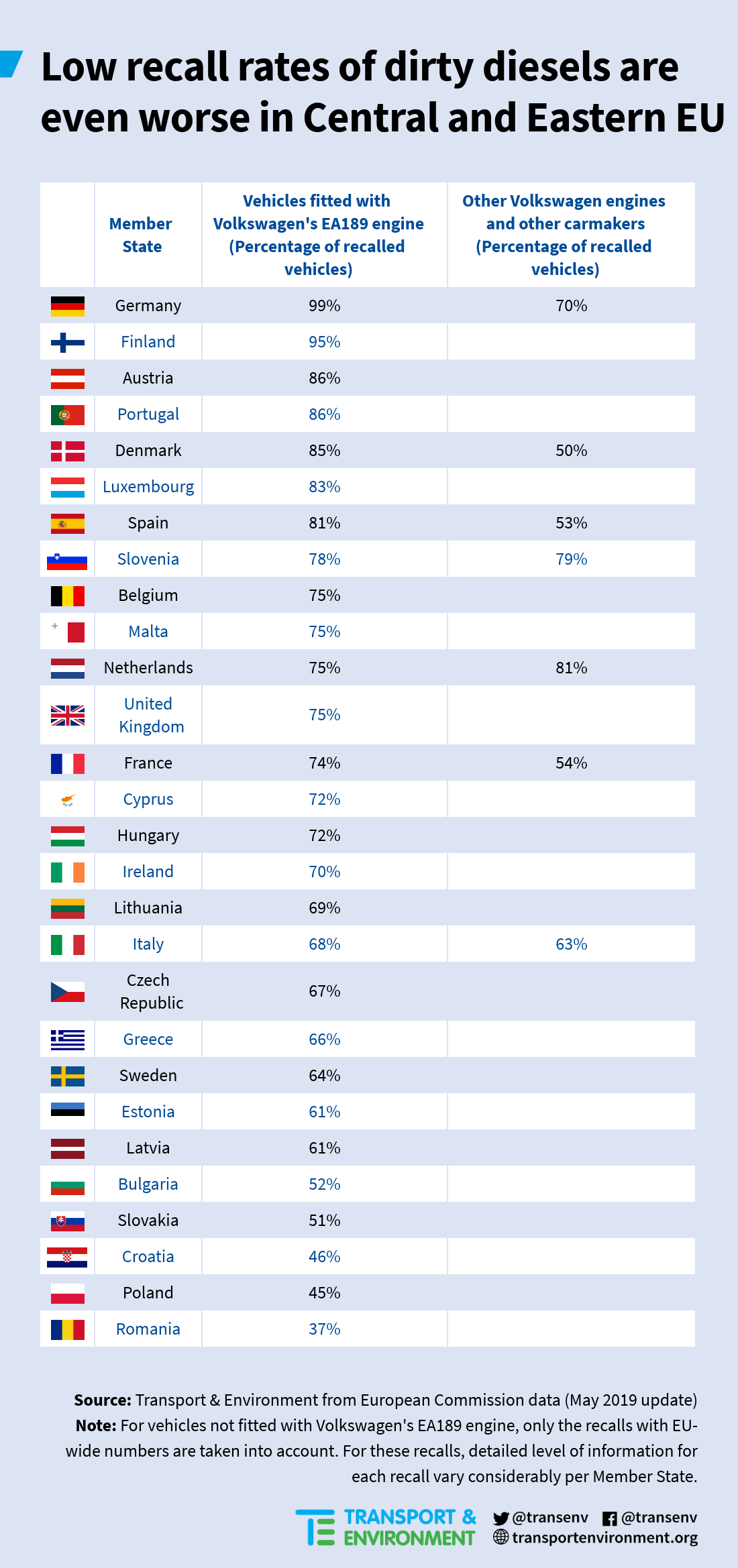
Interested in this kind of news?
Receive them directly in your inbox. Delivered once a week.
Florent Grelier, clean vehicles engineer at T&E, said: “The current snail’s pace to clean up diesel cars across Europe is unacceptable. The industry has had four years since the diesel scandal broke but has failed to deliver even on its own commitments to fix manipulated cars. It’s time for governments to get tough and order mandatory recalls across the EU. This does not require any new laws but just political will.”
The situation is even worse for consumers and public health in Central and Eastern Europe where only 55% of the Volkswagen Group’s cars have been recalled compared to 83% in Western Europe. Unfixed dirty diesels are even shipped to these countries as they are increasingly subject to bans in western cities such as Paris, Madrid and Hamburg. 350,000 dirty second-hand diesel cars mainly from Germany were exported to Poland in 2017 alone. T&E said EU governments must make sure recalls will be carried out in a coherent and transparent manner across the whole EU Single Market, and that unfixed cars should not be allowed to be exported unless they are fixed.
Right now cars can be sold across the EU single market once they have been type-approved in only one member state, but there is no European system to ensure the uniform recall of cars. New rules that allow EU-wide recalls will only apply to new cars sold as of September 2020 – so Europe is left with the fleet of polluting diesel cars resulting from Dieselgate.
Florent Grelier said: “The EU Single Market fails when it comes to emissions of cars. It only works for selling cars, but not for recalling them when things go wrong. There must not be any second class citizens in Europe. Every European has an equal right to clean air. The recent EU ‘roadmap towards clean vehicles’ shows that governments and the industry know exactly what needs to be done, they just have to start implementing.” [2]
Notes to editors:
[1] T&E’s analysis indicates there are still 43 million grossly polluting diesel cars and vans – the main cause of toxic NO2 exceedances in urban areas – on the EU’s roads. These vehicles emit at least three times the legal levels of NOx, which has adverse respiratory effects including asthma in the short term and is linked to lung cancer in the long term.
[2] On 18 March 2019 the European Commission published a European “roadmap towards clean vehicles” that built upon work with national experts and presented concrete solutions for the legacy of dieselgate. T&E has analysed the roadmap and made recommendations for its implementation.


